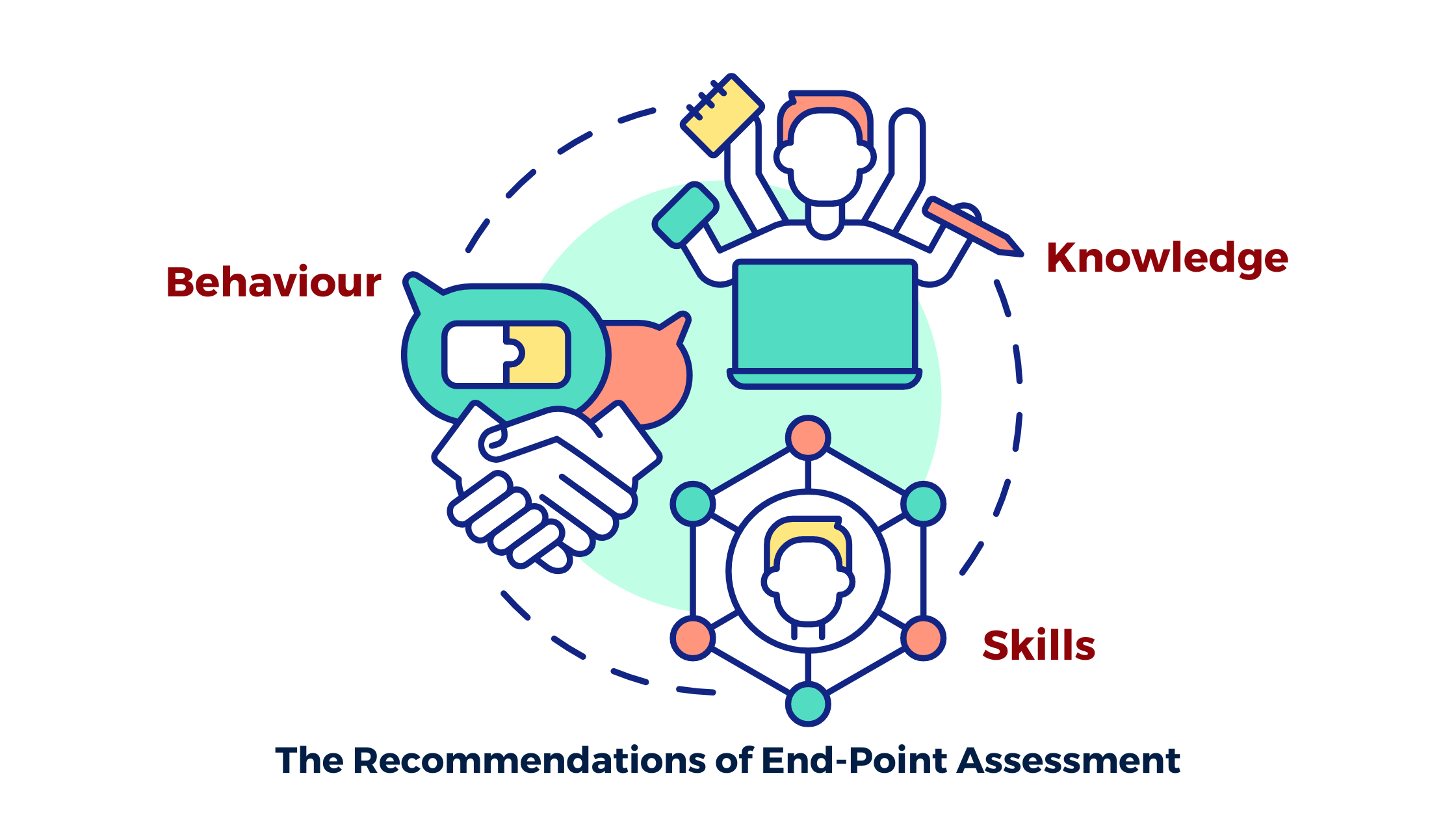APEL.Q – Accreditation of Prior Experiential Learning (APEL) for Qualifications (Q) is the award of academic qualifications to individual learners through the evaluation and assessment of prior experiential learning towards fully accredited programmes offered by the higher education providers (HEPs) partners of the London Academy of Sciences.
In the assessment of APEL.Q, a panel will match the program’s learning outcomes with your work experience and formal/ informal qualifications through the End-Point Assessment (EPA) process. This article aims to provide five helping ideas to help applicants achieve their degrees.
Table of Contents
ToggleWhat do we know about End-Point Assessment (EPA)?
End-Point assessment (EPA) is the procedure that requires students to submit evidence and documents to the institution in order to prove students’ field experiences to receive APEL.Q qualifications. Students should be able to demonstrate their knowledge acquisition and growth, goals record, professional attributes and achievements over time and in collaboration with others in the organization or workplace in receiving APEL.Q qualifications.

End-point Assessment consists of a log and evidence of working experiences.
In detail, a reflective log is at most 4,000 words with appendices consisting of a collection of relevant evidence to support the achievement of goals, knowledge, behaviours, and attributes aligned to the modules which would be taught in the program.
The Recommend Outline for End-Point Assessment (EPA)
There are two sections in EPA that applicants should fully understand and provide to satisfy the learning module requirement: the Reflective Learning Log & Evidence-based approach for Portfolio.
In the first section, 3 key modules will consist in the log regarding knowledge, skills and behaviour/attribute. The piece of knowledge in the experiences should align with each other in the paragraph, along with unlearned knowledge and re-participate in learning experiences in the following parts in the knowledge section when you can join the programme.

There are 3 critical aspects of End-Point Assessment should be consist of.
In written parts of skills, applicants should outline which competencies they would acknowledge and further develop for the current skill set. Another crucial part is behaviour towards the working environment; discovering new working habits and improving the current fundamental behaviour would be acquired to list out.
You can visit here for further information about the procedure and the application requirements.
5 Highlights For An Excellent End-Point Assessment (EPA)

The requirements of the End-point Assessment have been stated clearly in the emails.
Read the EPA requirements clearly and carefully.
The attachments, emailed to potential applicants after applying, contain requirements that are explained in a way that is easy to understand. Candidates must provide evidence and a reflective journal demonstrating how they have met the learning outcomes through their prior experiences.
Before beginning, students should list the experiences that are most relevant to their area of expertise after reading through the course’s objectives and desired goals. Candidates with a comprehensive understanding of the results have an advantage in the following steps.
List out milestones
Students may save time by simply listing these milestones, giving them a more comprehensive understanding of their career path. They can contribute new thoughts or exclude others to structure the reflection more reasonably.

Milestones should be listed in order to succeed EPA.
One advantage for applicants is that they will have an easier time reviewing everything if they have the checklists close by. Locating the repeated points and incorporating additional self-instances can show a better reflection log.
Put and name the folders.
You must submit informative documents containing much evidence from your working experience. Collecting those documents and named after the learning outcomes can be more accessible for the writer to organize and check.
Managing your time
A long process would occur to complete the documents, and the deadline lasts for 2 months from the point when candidates receive the email. Writing and collecting the shreds of evidence can not be filled up instantaneously, so time must be divided to finish it thoroughly.
If you complete it in a short amount of time and are not overly invested in your log, it might be assessed as unsatisfied with the requirements of APEL.Q.

Managing your time would positively impact your EPA.
Check spelling and grammar.
Before submitting anything, you must double-check the fields for correct spelling and punctuation. You must also examine the documents thoroughly to ensure they are free of any grammatical or spelling errors that could compromise credibility.
Conclusion
Overall, APELQ can be deemed equivalent to a degree earned through full-time study, allowing students to make the most of their time and the money they invest in their education. A formal diploma opens more doors for career advancement and improves the availableness of numerous occupations. You can read here for more information about APEL.Q.
Université Libérale de Paris, the first liberal arts university for post-graduates in Paris, France, endorses and recognizes all short courses for learners who could obtain academic credit when applying for the APEL.Q process. For more information about Paris-U, please visit here.




